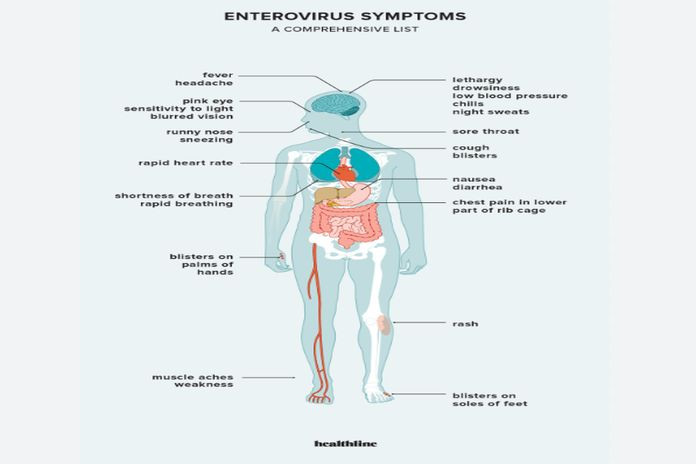SWITZERLAND / FRANCE, (WHO) – On 5 May 2023, France reported an increase in cases of severe neonatal sepsis associated with Enterovirus (Echovirus-11 (E-11)).
A total of nine cases of neonatal sepsis with hepatic impairment and multi-organ failure were reported between July 2022 and April 2023 from four hospitals in three regions of France. As of 5 May 2023, seven cases have died and two were still hospitalized in neonatal unit.
The current increase in incidence and severity in neonates, associated with a recombinant lineage of E-11 that previously was not detected in France, and is considered unusual due to the extremely rapid deterioration and associated case fatality rate amongst the affected babies.
Based on the limited information available, WHO assesses the public health risk for the general population to be low, despite the concerning nature of the increase.
- The full text of the DON is available here.
Description of the cases
On 5 May 2023, France reported nine cases of severe neonatal sepsis associated with hepatic impairment and multi-organ failure including seven associated deaths. Of these nine cases, eight were preterm (born before 38 weeks of gestation). Four pairs of twins were affected and presented with late-onset neonatal sepsis (occurring after one week of birth to three months).
The cases were reported from four hospitals in three regions between July 2022 and April 2023. Of the nine reported cases, six were reported in 2022 (two cases each in July, October, and December) and three were reported in 2023 (one case in January and two cases in April).
All cases presented with one or more clinical signs less than seven days after birth, suggesting a mother-to-child transmission route. The clinical presentation of these cases was considered to be atypical due to their extremely rapid deterioration and the associated case fatality rate. As of 5 May 2023, seven cases have died and two were still hospitalized in the neonatal unit; their short-term prognosis is no longer threatened.
Enterovirus reverse transcription polymerase chain reaction (RT-PCR) testing of all nine cases (including blood samples, throat swabs, nasopharyngeal swabs, cerebrospinal fluid samples, and/or post-mortem biopsies) confirmed the presence of enterovirus, typed as Echovirus-11 (E-11). E-11 maternal infection was confirmed by RT-PCR and enterovirus genotyping by analyzing blood samples from four out of five mothers. All tested mothers presented with gastrointestinal signs or fever within the three days before or at delivery.
Sequence analyses of all typed enterovirus infections in 2022 showed the circulation of at least two lineages of recombinant origin, of which the predominant one included all the sequences associated with the nine cases together with sequences associated with non-neonatal or non-severe neonatal infections. Further genetic analyses are ongoing.
According to historical data from 2016 to 2021, E-11 represented 6.2 percent (3 of 48) of reported severe neonatal infections with known enterovirus type while this proportion increased to 55 percent (11 of 20) in 2022.





